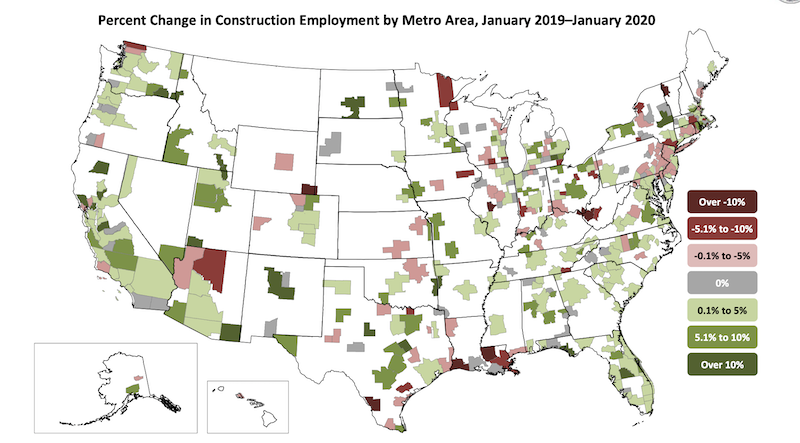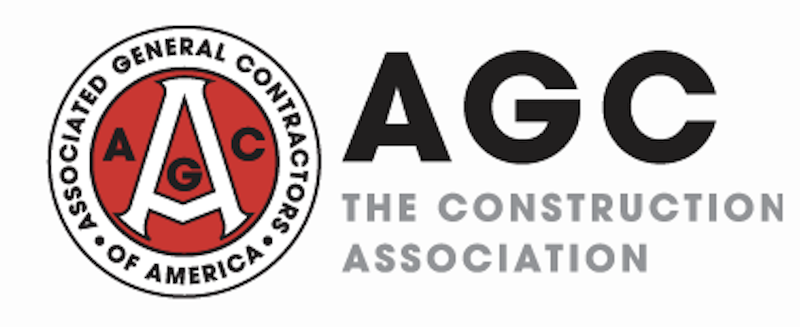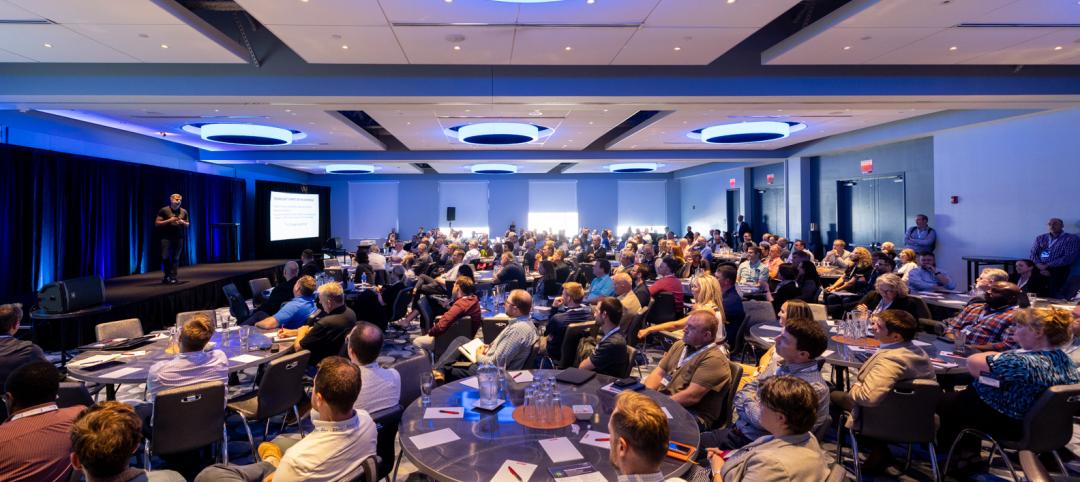The Associated General Contractors of America (AGC), with 26,000 members, has put together an eight-part webinar series whose episodes will take deeper dives into various topics related to business continuation during the COVID-19 outbreak.
The series, which runs from March 23 through April 1, each day will present a 60- to 90-minute segment on which experts will address, within the context of the virus’s spread:
• State and federal governments’ obligations to provide paid and/or unpaid leave to employees
• What labor laws are likely to require of contractors
• Contractual and related legal protections and risks for construction companies
• How to protect people and projects
• Components of comprehensive project continuity plans (e.g., if employees need to be quarantined)
• Insurance coverage
• How the outbreak is pressuring information technology
• What contractors need to watch for going forward.
Click here to get more details and to register for the webinars, which are free for AGC members and $599 for the bundle for nonmembers.

What a difference a few weeks makes. In January, AGC reported that 200 of 356 metro areas added construction jobs (see map above). A survey of contractors last week, however, found that 28% of 909 respondents had been forced to delay or halt work by an owner or government official.
“We are treating the virus with the same type of triage as medical professionals” attend to life-threatening injuries or illnesses, said Steve Sandherr, AGC’s chief executive, during a webinar last Friday where he and other association officials discussed some their group’s lobbying efforts around four objectives: to keep its members working, to keep governments “from hurting you,” says Sandherr, to educate Congress about the “essential” nature of construction, and to provide information that keeps contractors and their employees safe and mitigates losses.
Ken Simonsen, AGC’s chief economist, said that while the construction industry has been able to keep most projects active, he expects more supply-chain “glitches” and government shutdowns of jobsites. If those predictions come true, Simonsen cautions that the construction sector “is likely to have a slower recovery.”
The association also contends that the nation would be hampered in its ability to remobilize the construction industry in response to rebuilding emergencies were that industry’s activities curtailed or shut down now.
That webinar devoted a lot of time to the paid-leave mandate under the Families First Coronavirus Response Act, which was signed into law March 18, and applies to private-sector companies with 500 or fewer employees. Over a three-day period last week, AGC members flooded Congress with more than 22,000 messages about this bill (which AGC opposed) as well as about protecting construction jobs.
The main goal of AGC’s lobbying efforts is maintaining its members’ cash flow, said Jimmy Christianson, AGC’s vice president of government relations. He said AGC still has questions about the paid leave legislation (especially how the benefits will be paid for). So far, said Christianson, the association has negotiated some improvements to the bill, such as convincing Labor Secretary Eugene Scalia to exempt companies with under 50 employees from providing benefits for both paid sick leave and paid family and medical leave; and narrowing the instances of employees to be eligible to use paid family and medical leave.
Kevin Cannon, AGC’s senior director of safety and health services, told the webinar’s listeners that AGC had a hand in new OSHA guidance for recording workplace exposures to COVID 19 and preparing the workplace to thwart the virus. AGC has also created a COVID 19 Response page on its website.
Simonsen suggested that there could be opportunities arising from the pandemic, such as increased demand for labs, testing facilities, and hospitals. He speculated about hospitality buildings being repurposed for housing and medical uses. On the other hand, the pandemic will inevitably raise questions about the wisdom of investing in sports arenas, which are now dormant; and in office space if companies get more comfortable letting their employees work from home.
Michael Kennedy, AGC’s general counsel, said that the association was preparing a joint statement with the Building Trades union that would advocate for identifying construction as an essential business and service. That statement, he said, would emphasize that construction workers are already wearing protective clothing and gear, and can be instructed on exercising social distancing. “We need to make the case that we are taking care of our people,” Kennedy said.
Related Stories
Transit Facilities | Jul 10, 2024
Historic Fresno train depot to be renovated for California high speed rail station project
A long-shuttered rail station in Fresno, Calif., will be renovated to serve as the city’s high speed rail (HSR) station as part of the California High-Speed Rail Authority system, the nation’s first high speed rail project. California’s HSR system will eventually link more than 800 miles of rail, served by up to 24 stations.
Contractors | Jul 9, 2024
The average U.S. contractor has 8.4 months worth of construction work in the pipeline, as of June 2024
Associated Builders and Contractors reported today that its Construction Backlog Indicator increased to 8.4 months in June, according to an ABC member survey conducted June 20 to July 3. The reading is down 0.5 months from June 2023.
Government Buildings | Jul 8, 2024
GSA adopts new accessibility guidelines for federal properties
The U.S. General Services Administration (GSA) adopted a new rule with new accessibility guidelines for federal buildings. The rule establishes that pedestrian facilities in the public right-of-way are readily accessible to and usable by people with disabilities.
Office Buildings | Jul 8, 2024
Office vacancy peak of 22% to 28% forecasted for 2026
The work from home trend will continue to put pressure on the office real estate market, with peak vacancy of between 22% and 28% in 2026, according to a forecast by Moody’s.
Virtual Reality | Jul 8, 2024
Can a VR-enabled AEC firm transform your project?
With the aid of virtual reality and three-dimensional visualization technologies, designers, consultants, and their clients can envision a place as though the project were in a later stage.
Green | Jul 8, 2024
Global green building alliance releases guide for $35 trillion investment to achieve net zero, meet global energy transition goals
The international alliance of UK-based Building Research Establishment (BRE), the Green Building Council of Australia (GBCA), the Singapore Green Building Council (SGBC), the U.S. Green Building Council (USGBC), and the Alliance HQE-GBC France developed the guide, Financing Transformation: A Guide to Green Building for Green Bonds and Green Loans, to strengthen global cooperation between the finance and real estate sectors.
Codes and Standards | Jul 8, 2024
New York State building code update would ban fossil fuels in new buildings
New York’s Building Code Council is set to include the All-Electric Buildings Act in its 2025 code update. The Act would ban natural gas and other fossil fuels in new buildings.
AEC Tech Innovation | Jul 4, 2024
Caution competes with inevitability at conference exploring artificial intelligence for design and construction
Hosted by PSMJ, AEC Innovate in Boston found an AEC industry anxiously at the threshold of change.
Building Team | Jul 3, 2024
So you want to get published: What’s next?
In the AEC industry, securing media attention is no longer a niche endeavor but an essential component of a holistic marketing strategy.
MFPRO+ New Projects | Jul 2, 2024
Miami residential condo tower provides a deeded office unit for every buyer
A new Miami residential condo office tower sweetens the deal for buyers by providing an individual, deeded and furnished office with each condo unit purchased. One Twenty Brickell Residences, a 34-story, 240-unit tower, also offers more than 60,000 sf of exclusive residential amenities.

















